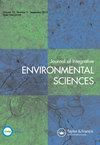只见树木不见树木:一个启发式框架,使可持续发展教育在高等教育环境中得以整合
IF 3.5
4区 环境科学与生态学
Q3 ENVIRONMENTAL SCIENCES
Journal of Integrative Environmental Sciences
Pub Date : 2023-09-06
DOI:10.1080/1943815x.2023.2250420
引用次数: 0
摘要
本文提出了一个概念框架,以支持高等教育机构可持续发展教育(ESD)的战略和实践综合行动的双重挑战。有许多现有的资源和工具包提供了适当的行动、指导或方法来监测和测量ESD参与。我们在本文中的独特贡献是用启发式思维方式来补充这些,这种思维方式在制度层面上提供了关于可持续发展教育的背景和进展演变的清晰信息。我们的建议是由来自七所欧洲大学的可持续发展教育实践者通过结构化的比较讨论制定的,从而对一系列环境中的关键上下文影响达成共识,体现在我们提出的启发式隐喻中。由此提出的框架建立在以系统为基础的高等教育机构森林生态系统的视觉隐喻之上,建议使用能力和承诺的维度来定义一个具有四个位置情景的综合框架:“实践的小范围”、“新兴议程”到“综合影响”和“议程之外”。为了说明该计划的应用,我们在策略、员工发展、正规教育和课外机会等方面,介绍了在每个情况下发展“可持续发展教育”的相关步骤。我们认为,高等教育从业者采用这样的框架可以支持日常决策和战略规划,从而实现与大学所有领域活动相结合的可持续发展教育的综合方法。本文章由计算机程序翻译,如有差异,请以英文原文为准。
Seeing the wood for the trees: a heuristic framework to enable the integration of sustainability education in higher education settings
This paper puts forward a conceptual framework to support the dual challenges of strategic and practical integrative action of Education for Sustainable Development (ESD) across Higher Education Institutions (HEIs). There are numerous existing resources and toolkits providing appropriate actions, guidance or approaches to monitor and measure ESD engagement. Our intended distinctive contribution in this paper is to complement these with heuristic ways of thinking that offer clarity on the context and evolution of progress on ESD at an institutional level. Our proposals were developed through structured comparative discussions by ESD practitioners from seven European universities, leading to a consensus view on key contextual influences across a range of environments, embodied in our proposed heuristic metaphors. The resulting proposed framework, built upon a systems-based visual metaphor of a forest ecosystem of HEIs, proposes the use of the dimensions of capacity and commitment, to define an integrative framework with four positional scenarios: ”Pockets of Practice”, “Emerging Agenda” to ”Integrated Impact” and “Off the Agenda”. To illustrate its application, it is used to contextualize relevant steps to progress ESD associated with each scenario in the areas of strategy, staff development, formal education and extra-curricular opportunities. We argue that the adoption of such a framework by HEI practitioners could support day-to-day decision-making and strategic planning towards an integrated approach to ESD that engages with all areas of university activity.
求助全文
通过发布文献求助,成功后即可免费获取论文全文。
去求助
来源期刊

Journal of Integrative Environmental Sciences
ENVIRONMENTAL SCIENCES-
CiteScore
3.90
自引率
0.00%
发文量
13
审稿时长
>12 weeks
期刊介绍:
Journal of Integrative Environmental Sciences (JIES) provides a stimulating, informative and critical forum for intellectual debate on significant environmental issues. It brings together perspectives from a wide range of disciplines and methodologies in both the social and natural sciences in an effort to develop integrative knowledge about the processes responsible for environmental change. The Journal is especially concerned with the relationships between science, society and policy and one of its key aims is to advance understanding of the theory and practice of sustainable development.
 求助内容:
求助内容: 应助结果提醒方式:
应助结果提醒方式:


